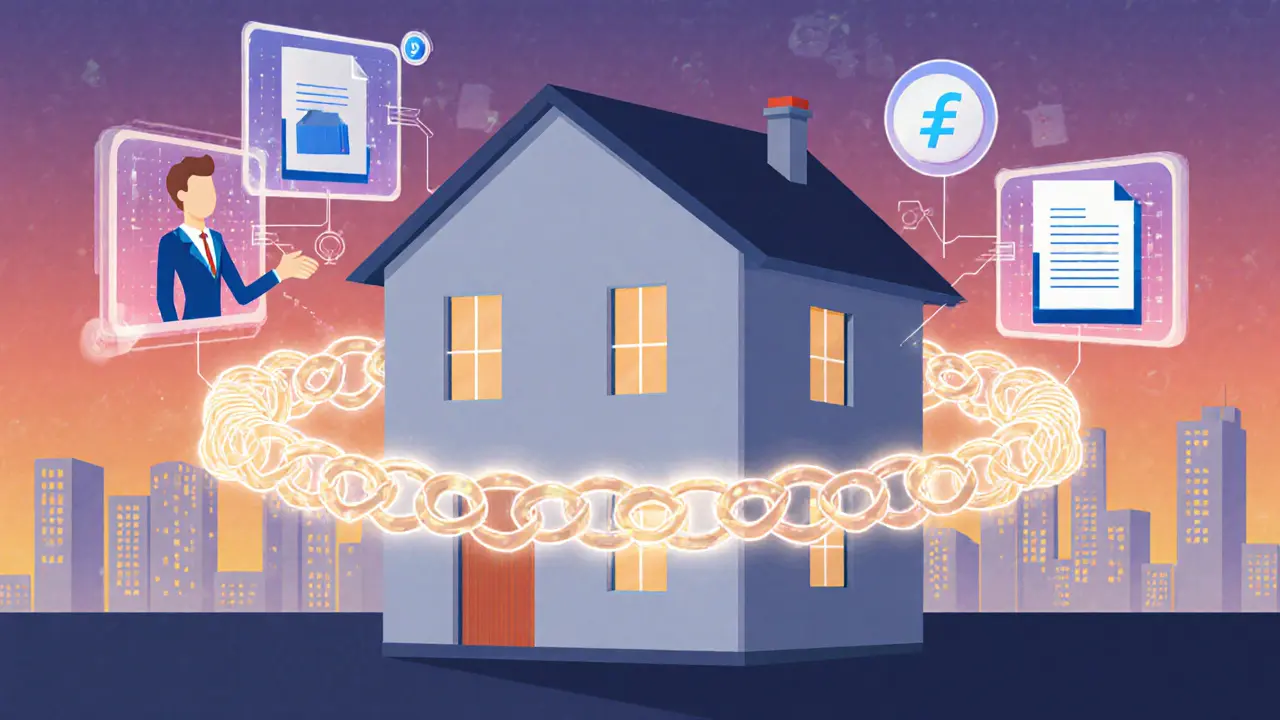Blockchain Real Estate: How Property Meets Crypto on the Blockchain
When you think of blockchain real estate, the use of blockchain technology to represent, buy, sell, or manage physical property as digital assets. Also known as real estate tokenization, it turns houses, land, and commercial buildings into tradable tokens on a blockchain. This isn’t sci-fi—it’s happening right now. People are buying fractions of homes in Miami, leasing office space in Singapore, and even trading virtual plots in digital worlds—all recorded on immutable ledgers. The core idea? Remove middlemen, lower costs, and open ownership to anyone with internet access.
Behind this shift are three key players: smart contracts, self-executing agreements with rules written directly into code, automatically handling property transfers, rent payments, or ownership splits; real estate tokenization, the process of dividing property value into digital tokens that represent shares, making it easier to buy small portions; and digital land, virtual plots in metaverse platforms like Decentraland or The Sandbox, where users build, sell, and rent digital spaces. These aren’t separate ideas—they work together. A smart contract can automate rent collection on a tokenized apartment in Berlin, while someone in Tokyo buys a piece of that property using crypto. Digital land isn’t just games—it’s becoming a new asset class, with some plots selling for over $1 million.
But not everything labeled "blockchain real estate" is real. Many projects promise ownership but offer nothing but a logo and a whitepaper. You’ll find posts below that expose fake land sales, dead tokenized property schemes, and crypto platforms pretending to handle real estate while having zero legal backing. Others show how actual companies in the U.S., Estonia, and Switzerland are using blockchain to streamline title transfers, cut months off closing times, and let global investors participate. Some even let you earn passive income by renting out tokenized properties—no landlord needed.
What you’ll see here isn’t theory. It’s real examples—some working, most failing. You’ll learn why some digital land projects collapsed overnight, how tokenized real estate can bypass traditional banking, and what red flags to watch for before buying a "property" that exists only on a screen. If you’ve ever wondered if you can truly own a piece of real estate with crypto, or if this is just another bubble, the answers are in the posts below.
Smart Contracts for Property Sales: How Blockchain Is Changing Real Estate Transactions
Smart contracts for property sales use blockchain to automate ownership transfers, cut costs by up to 50%, and reduce closing times from weeks to days. Learn how they work, their benefits, and why adoption is still limited.
Details +